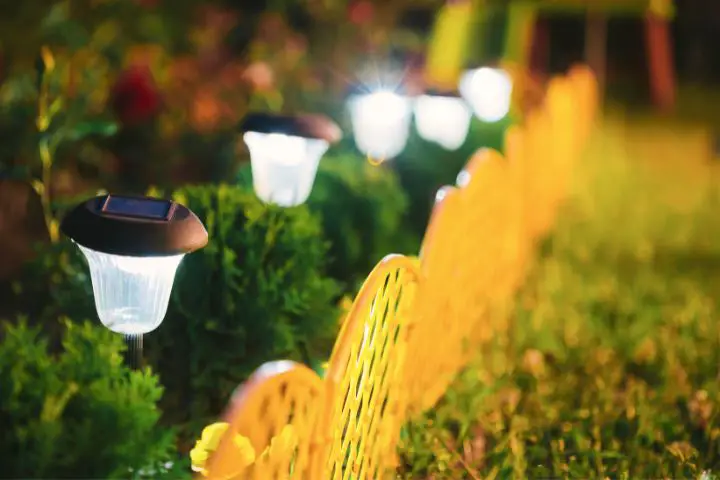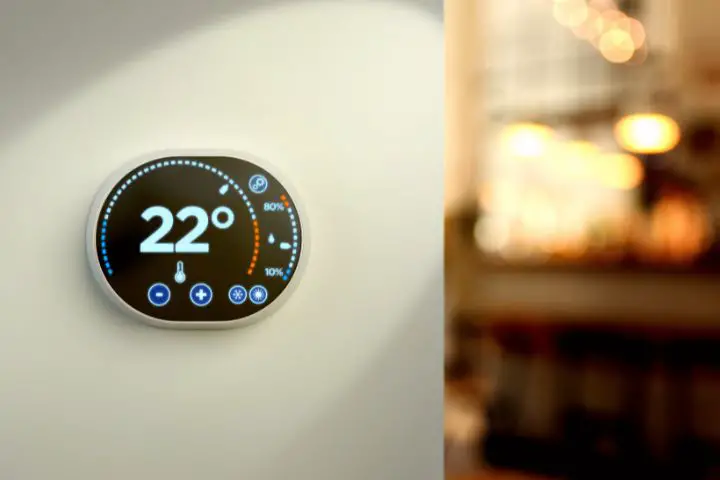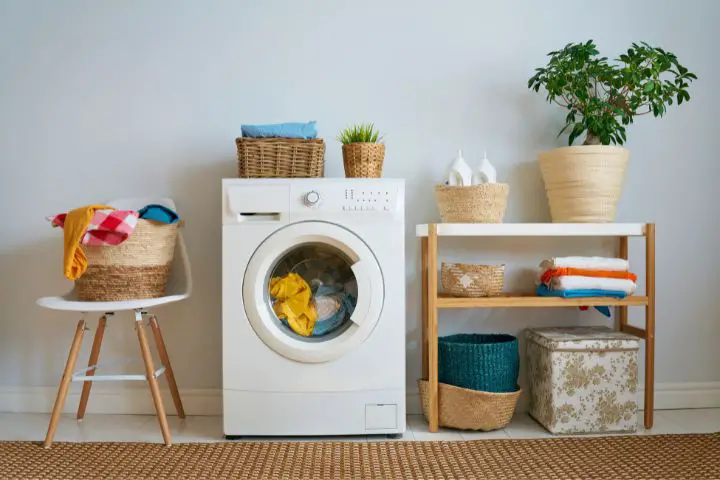The Definitive Guide to Solar Home Appliances (From Kitchen to Bathroom)
I remember the first time I brought home a solar-powered lamp. I was skeptical, I’ll admit it. But when I switched it on, there was this warm, bright light that filled the room, and I knew I was onto something.
Solar home appliances are a whole new micro-universe, similar but at the same time completely different from those big solar panels you see on rooftops. From your kitchen to your living room, and even your bathroom, solar-powered appliances are ready to revolutionize our lives.
And I’m about to show you how!
5 Types of Appliances You Can Run on Solar Power
Solar-powered appliances aren’t just eco-friendly (though that’s a plus!). They are also a game-changer for your energy bills, efficiency, home value appreciation, and cost savings.
You might be wondering: How’s this even possible? Why isn’t this tech hitting the news headlines?
There are a couple of reasons, and the first one I felt on my own skin:
- Solar power is still growing. The initial cost of solar-powered appliances can be high, which puts off average homeowners and limits mainstream flashiness.
- It’s an ugly truth, but misinformation and lack of awareness persist in the solar field as much as any other. Many people still view solar power as unreliable or complex or not as cost-effective as we’d like, which also puts a damper on the solar appliances aisle.
- The media often focuses on the “new and shiny”. Solar appliances, representing a gradual shift towards sustainability, don’t fall into that category.
But tech has a different view. And that’s why these solar appliances remain strong, no matter what you throw at them.
1. Go Green with Solar-Powered Lighting
There are two main types of these: indoor and outdoor.
Indoor solar lights range from desk lamps to decorative fairy lights. Outdoor solar lights include paths, security, and decorative garden lights.

Pros and Cons
Solar lighting has many pros:
- Energy-efficient
- Cost-effective in the long run
- Easily installed without any wiring
- A great way to reduce your carbon footprint.
There’s just one, but significant con that bothers me.
Just like general solar panels in winter, they aren’t that reliable during the cooler months when sunshine is almost non-existent. So you’ll probably need to turn back on your regular lighting or at least have it as backup for almost half of the year.
Pricing Comparison
While solar lights cost more upfront than traditional lights, they’ll save you money in the long run since they use free energy from the sun. For example, a high-quality solar LED path light can cost around $20-$30, while a similar non-solar light can cost for around $10-$20 but will add to your electricity bill!
How Do They Work?
How do I know whether I need (more) solar panels to power my lights?
Here’s the rule of thumb.
The number of solar panels required depends on the type and number of lights. Most individual solar lights have built-in panels and don’t require additional ones.
However, for a system of solar lights that exceeds 20W or higher, you might need a small solar panel setup on your roof or backyard.
2. The Rise of Solar Kitchen Appliances
Imagine cooking your favorite meal using the sun. (And I’m NOT talking about your pavement getting so hot in summer that you can fry eggs on it in a matter of seconds.) Sounds pretty cool, right? Well, with solar-powered kitchen appliances, it’s not a dream anymore.
As of this writing, solar ovens, freezers and refrigerators (portable or not) are more or less widely available. When planning your switch to solar-powered kitchen appliances, it’s crucial to consider your kitchen remodeling budget. These innovative appliances can be a significant investment, but the long-term benefits often outweigh the initial costs.
I know what you’re thinking. It’s easy to cook and freeze food if you have a solar-powered 12V generator, but can I use my panels to do my dishes?
That thought got me scratching my head, so here’s what I learned. Solar-powered dishwashers are completely different from solar LED lights. In most cases, they are wired to a whole solar panel system, getting power directly from the MPPT unit. They draw energy from the battery.
Pros and Cons
As with all other types of solar appliances, they are eco-friendly. But it’s their big initial investment that damages their impressive sustainability reputation.
Plus, solar refrigerators, freezers, and dishwashers all run on current electrical wiring, so there’s NO solar panel independence like with small garden lights.
Pricing Comparison
You’ll find that solar ovens and other “sunny” cooking gear are cheaper than traditional cousins. For example, a solar oven can cost anywhere from $100 to $400, while a conventional oven can range from $200 to $500.
But solar freezers and refrigerators are almost twice the price of their traditional counterparts. Since they run on 12V DC, they use a completely different refrigerant system, pushing the price higher.
How Do They Work?
Did you know that solar ovens don’t need solar panels to work?
Instead, they use special reflection materials to focus the sunbeam on the cooking area, reaching up to 550 degrees Fahrenheit!
But solar freezers, refrigerators, and dishwashers are a completely different story! If they aren’t powered by a regular 12V DC supply, prepare a setup of solar panels wired in parallel to deliver enough juice to power a 100W demanding cooling box.
3. Solar Home Temperature Control
You’re probably thinking: “Solar air conditioners?” It’s just a regular AC unit powered by solar panels. What’s so special about them?”
Here’s the catch: Modern solar conditioners use thermal cooling aka solar refrigeration. They use the sun’s heat to evaporate a refrigerant, which cools the air. It’s like how you feel cooler when your sweat evaporates, but without a workout or a hot summer day.

If you’re shopping for solar AC units, always aim for hybrid ones. They aren’t energy-gobblers as their traditional cousins, and can both run on solar DC and, if bad weather hits, AC voltage. Pros and Cons
There’s something incredibly satisfying about knowing that my comfort isn’t costing the earth. Every time I hear that gentle air conditioner hum, I feel a little bit of eco-pride.
But that’s not to say that there aren’t any downsides. Here’s the thing: Solar air conditioners love the sun. Cloudy days? Not so much. There will be times when performance dips due to overcast weather.
But most systems have a backup for such days, so it’s more of a minor inconvenience than a deal-breaker.
Pricing Comparison
I won’t lie. When I first considered getting a solar air conditioner, the price tag gave me sticker shock. It was like walking into a fancy boutique and falling in love with the most expensive item in the store.
But here’s the thing: just like that designer dress, the value of a solar air conditioner extends beyond the initial cost. Solar air conditioners aren’t bargain-bin finds.
Once my solar air conditioner was up and running, I saw a drop in my energy bills. It was like getting a small monthly rebate on my initial investment. A gift that keeps giving!
How Do They Work?
The number of solar panels required to run an air conditioner depends on several factors, including the cooling capacity of the AC unit, its Energy Efficiency Ratio (EER), and the percentage of time the compressor is running.
4. Eco-Friendly Solar Bathrooms

Let’s step into the bathroom area, shall we?
I’m talking about solar-powered bathroom appliances. When I first heard of them, I was intrigued. I mean, who wouldn’t want to clean their clothes using the sun? It was like seeing the price of a fancy, organic, gluten-free, dairy-free, everything-free loaf of bread at the health food store.
Pros and Cons
One of the biggest perks of my solar bathroom appliances? Savings on my energy bills. It’s like having a mini money-saving tree in my bathroom. Except, instead of growing leaves, it’s reducing my electricity costs. For example, I’ve cut my water heating energy bill in half compared to what I was spending before I installed my solar collectors and panels.
I remember when I first looked at solar-powered washing machines and dryers. I was excited about the idea, but when I saw the price tag, I had a ‘gulp’ moment.
And then, a few months after installing my solar washing machine, I had a ‘eureka’ moment. I looked at my energy bill, and I realized it was lower. Not just slightly lower, but significantly lower.
It was like finding a forgotten $20 bill in your old jeans.
Pricing Comparison
When I first looked at solar washing machines, the prices ranged from a bit shy of $200 to over $300. It felt like a hefty sum for such a small thing, like buying a designer dress for a one-time event. But then I remembered the long-term benefits.
Solar water heaters aren’t very cheap either. Their cost range starts at $1,000 to a whopping $4,000, not including plumbing costs. It was another gulp moment, like ordering a fancy cocktail and seeing the bill.
So, yes, solar bathroom appliances can be pricey upfront. But in my experience, they’re worth every penny.

How Do They Work?
A general rule of thumb for solar washing machines is that you’ll need at least two 250W solar panels. If you want to be safer, two 270W PV modules (totaling 540W) would be a better option.
When it comes to solar water heaters, you’ll need three solar collectors, NOT panels to harness the heat. Collectors heat circulating water, whereas panels generate energy.
Don’t let anyone tell you otherwise, or you’ll fall for the snake oil salesman tactics like I almost did at the beginning!
Solar Appliances: The Future That’s Already Here
Solar-powered appliances reduce carbon footprint, bring energy independence, and give you a small additional perk – bragging rights!
Besides going ALL-IN on solar-powered appliances and enjoying the perks (high energy cost reduction and minimal carbon emissions), don’t forget that going solar on your home’s appliances is not about keeping up with the Joneses with the newest flashy eco dishwashers. Rather, it’s a long-term strategy that pays off tenfold in the future!






